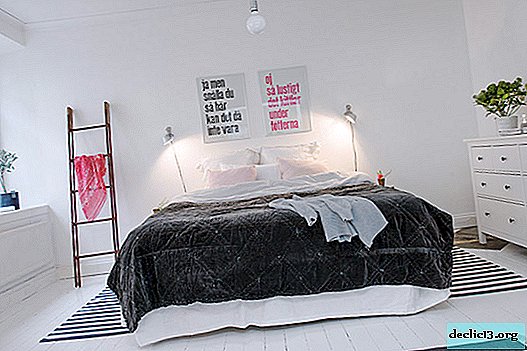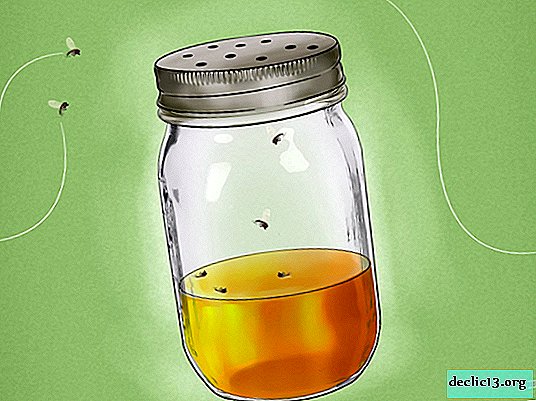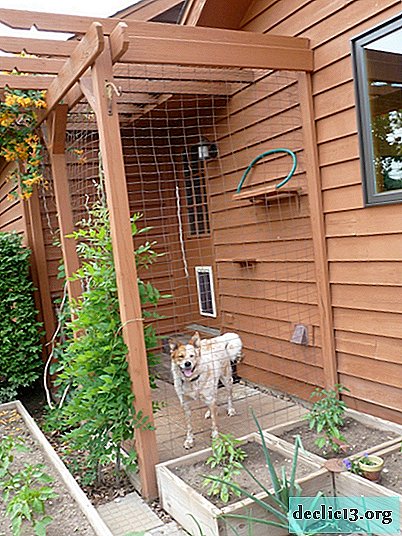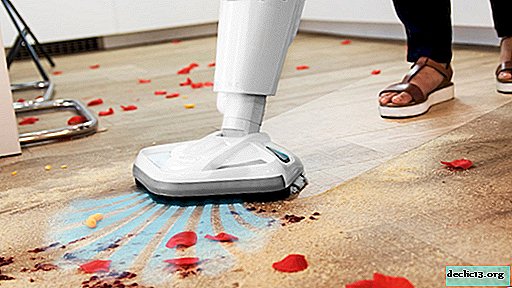How to clean upholstered furniture from dirt, grease and smell

Upholstered furniture makes the house more comfortable. After a hard day's work, it is pleasant to spend time relaxing on a soft sofa. Over the years, the furniture is covered with various stains and the appearance becomes unattractive. How to clean furniture at home? It is not as difficult as it may seem. The most important thing is to approach the process correctly. Before cleaning, you need to find out what material the furniture is draped with. The choice of method depends on this.
Preparation and Precautions

A common cleaning agent for furniture is chemicals that are mostly aggressive. Use rubber gloves to protect your hands. First test the product by dropping a little on an inconspicuous area. Thanks to this, you will learn how the substance affected the tissue. You can also damage the material by receiving an additional stain or hole.
It is necessary to determine the specifics of pollution. It makes no sense to remove traces of felt-tip pen with a tool that is used to remove dirt. For cleaning you will need:
- Soft sponge.
- Soft and hard brushes.
- Soap.
- Detergent.
- Salt.
- Ammonia.
- Aspirin.
Regardless of the material, the algorithm of actions is the same:
- Prepare a stain remover and place it in a convenient place.
- To apply means on the place of pollution. The stain removal time depends on how much it is already on the furniture. The stain will begin to decay after it is saturated with the product.
- Wait a while before removing contamination. Then the stain is removed with a brush.
- The remainder of the chemical is then removed.
If the stain remains after the first application of chemistry, the whole process repeats, but the exposure time increases.
Effective folk methods against dirt, grease and odor

Folk remedies are used when the stain is old and it is impossible to use chemicals, since tissue can be damaged. In such cases, it is used: shaving foam, vinegar solution, soap solution and much more, depending on the nature of the pollution. Consider popular folk remedies that will help return furniture to an attractive appearance and remove stains.
Vinegar
Table vinegar will help not only to remove small spots, but also to refresh the upholstery of a chair and sofa. Terms of use:
- To remove dust: 1 teaspoon of vinegar and 2 teaspoons of salt are mixed with 1 liter of water. In this solution, wet a small piece of tissue, cover the stain. We knock out furniture until traces of dirt no longer remain on the fabric. The method is suitable for cleaning a velor surface.
- Removing traces of juice: mix table vinegar and ammonia in equal proportions. The solution is rubbed into the stain. Wait for it to dry completely.
Having small children or animals at home, you can get spots with traces of urine. In this case, vinegar will help.
- A fresh stain of urine is removed with a paper towel.
- We remove the old stain with a solution of table vinegar and water, mixing in a proportion of one to two. The stain is wetted with a solution, covered with a paper towel until it dries completely.
Once the fabric has dried, sprinkle it with soda. We take 100 ml of hydrogen peroxide and 100 ml of water, add 0.5 teaspoon of liquid soap, mix everything and spray on soda. After a few hours, remove with a dry cloth and allow to dry. The smell of urine and the stain will disappear without a trace.
Mustard powder

Remove greasy stain with mustard powder. The cleansing plan is as follows:
- The contaminated area is wetted with water.
- Mustard powder sprinkles on top.
- Leaves for 5-10 minutes.
- Wipe the surface with a dry cloth or cloth.
- Residues are removed with a damp sponge.
For the second method, you will need to dissolve the mustard powder in a small amount of water, mix until a homogeneous consistency. Apply to the stain, leave for 30 minutes, wait for complete drying and remove with water.
Salt and hydrogen peroxide
Stains are best removed immediately. The longer the stain is on the surface of upholstered furniture, the more difficult it is to remove it. Salt and hydrogen peroxide will come to the rescue.
- If the pollution is fresh, then get wet with a dry cloth, napkins.
- Preparing a solution: 100 g of hydrogen peroxide and 2 tbsp. l salt.
- The solution is applied to the stain.
- Take the cloth and wipe. Repeat several times.
- We are waiting for 15 minutes.
- Then clean. Repeat until the stain disappears.
- We remove excess moisture with a dry sponge.
- Let it dry.
- Sprinkle the baking soda area and leave for a while.
- Remove the soda with a vacuum cleaner. This will help get rid of odors.
Before using hydrogen peroxide, drip a little on an inconspicuous area of fabric on the chair, because after cleaning, the contaminated area may be lighter due to the bleaching properties of the peroxide.
Soap

Using soap, you can not remove all the dirt, but only the following.
- Traces of coffee and tea. We rub the place of pollution with soap, then remove with a damp cloth or sponge. You can use a soapy solution. For 1 liter of water, add 2 tablespoons of vinegar, a little liquid soap and wipe the stain. Dry with a dry cloth.
- The trace and smell of beer. Rub with soap and remove with a damp sponge. A solution of vinegar will save you from the smell - 3 tablespoons of vinegar per 1 liter of water.
- Chocolate. Do not rush to remove pollution. Wait until it dries and remove with a spoon. When the stain is completely dry, use a mild soap solution to clean the surface. The residues are removed with a dry cloth.
Baking soda
Soda is used when upholstered furniture is dirty, greasy, or the color of the upholstery is dull. With soda, you can get rid of traces of tea, juice, traces of pens and watercolors. The tool can be used both for the entire product, and for individual parts. The method is simple, consists of several stages.
- Wet a new sponge with water.
- With it, moisturize the stain.
- Sprinkle with soda and leave for 30 minutes.
- Wipe clean with a damp sponge. You can use a soft bristle brush.
- Leave for several hours until completely dry.
- Hoover.
- The remaining soda is removed with a damp cloth and a sponge.
If a small stain needs to be removed quickly, pour soda on a damp sponge and clean the surface. After drying, remove the residue.
Vodka or alcohol
To clean the armchair or sofa from traces of wine, you can use vodka or alcohol. The stain from the wine is spreading, so it needs to be removed as quickly as possible.
- Blot excess wine with a paper towel and sprinkle with salt.
- Leave the salt for 20-25 minutes and remove with a brush.
- We turn to cleaning the surface. A cloth soaked in vodka or alcohol, wipe the wine stain.
After drying, soap the problem area with soap and remove the foam with a damp cloth. This will help remove stains.
Lemon and Citric Acid

Lemon juice and citric acid are ideal for odors. It is usually difficult to get rid of the smell of urine, which is why furniture is often thrown away. However, there is a folk remedy that will eliminate odor and traces. Lemon juice will help, which can be replaced with citric acid. The product dissolves in water, sprayed onto the stain. After 15 minutes it is processed again.
Other methods
In the process of life there are many ways to contaminate furniture, and often there is no special tool at hand, and you need to remove the stain quickly. In these cases, the housewife helps out folk methods. I will consider several methods that will help get rid of different types of pollution.
- Greasy spots need to be removed as quickly as possible. Chop the chalk and sprinkle the place of pollution. After a couple of minutes, when the chalk absorbs fat, remove with a napkin or sponge. Repeat the procedure several times until the stain disappears. With cosmetic talcum powder, children's principle of action as in chalk. If not chalk or talcum is at hand, use salt.
- Blood - one of the most persistent pollution. It’s hard to get rid of old blood stains, but you can try. On a stain we put a cloth dipped in cold water. After some time, clean the trail with a paper towel. Repeat the procedure several times. If the stain does not disappear, add 2 tablespoons of salt to a glass of water. We spray the solution onto the stain and remove the liquid with a napkin. To remove old stains, take 3% hydrogen peroxide. Dampen a napkin and clean the stain.
- Pen ink removes alcohol well. They moisten a cotton pad and wipe the problem area. Since the stain quickly spreads, they change the disc as it becomes dirty.
- Chewing gum - difficult to remove, but possible. Take a piece of ice and put on chewing gum. As soon as it hardens, we will scrap off. We will remove the remains with alcohol.
Special household chemicals - examples and instructions
A popular household cleaner for upholstered furniture is Vanish. It is produced in a large assortment. What Vanish products are suitable for what.
- Shampoo. Not only for a washing vacuum cleaner, but also for manual cleaning. We dilute it in 40-degree water in a ratio of 1 to 9. The solution is whipped until foam is formed and with a brush apply to a contaminated surface. But! Only foam. After 40 minutes, vacuum clean the detergent.
- Powder. The principle of action, like a shampoo. If a grease stain is to be removed, the powder is poured onto the surface. Dilute in water is not required.
- Spray. Shake the bottle before use, then apply a small layer. Upholstery should not get wet. The product is left for 5 minutes, then remove with a dry cloth.
To save furniture at home, various household chemicals are used - washing, shower gels, hygiene products. However, this is prohibited. It is possible to remove the stain, but there is a chance to spoil the upholstery. It is better to use special tools designed for furniture.
Features of cleaning furniture from different materials

Before cleaning the surface from stains, the upholstery fabric should be considered. The methods for each material are different.
Flock
- Floc can be cleaned with a towel dipped in soapy water.
- Wipe the cloth with a dry towel.
- To remove greasy stains, a soap solution can be used.
- Solvent and alcohol products are not recommended.
Velours
- To clean the velor, use a soap and vinegar solution. During the procedure, move in the direction of the pile.
- To remove animal hair, use a soft-brushed brush. This will help preserve the look for a long time.
Microfiber
Microfiber drapery furniture is unpretentious in care.
- To keep clean it is enough to clean the upholstery with a dry sponge and vacuum.
- To remove stains, a soap solution or special chemistry is used.
- When drying, do not use heat sources, as the fabric will lose its original properties.
Leatherette
The material is easy to clean.
- To wipe a smooth surface with a cloth, remove dust.
- Greasy stains on leatherette do not appear. All traces are removed with soapy water.
- In some cases, alcohol is used - on small volumes it will not harm.
Wood
Wood furniture needs constant, gentle care.
- Contaminated areas are cleaned with baby soap dissolved in 0.5 liter of water.
- For polishing use water and lemon essential oil. The components are mixed in equal proportions.
- You can remove the stain with a solution of water with lemon juice, mixed in equal proportions.
Leather
Leather products do not absorb dust and dirt, like fabric surfaces.
- For delicate cleaning use a mild soapy solution.
- Do not abuse wet cleaning, as the skin may tarnish.
- Do not use products containing acetone.
Useful Tips
- Covers will help to prevent the appearance of dirt on upholstered furniture. They protect objects from dust, dirt and stains. It’s easier to wash a cover in a washing machine than to clean a complex stain.
- If there is no desire to hide the beauty under the covers, then you need to carry out daily cleaning - vacuum and wipe.
- Do not wet the cloth strongly. Water can ruin the surface.
- For any stain removal method, move from the edge to the center. This will not increase the area of the problem.
- If there are several spots, remove one, then the other.
You can clean the stains at home, but you need to make a lot of effort. To keep furniture happy for many years, remove dirt immediately. Inveterate problems are more difficult to clean.

















